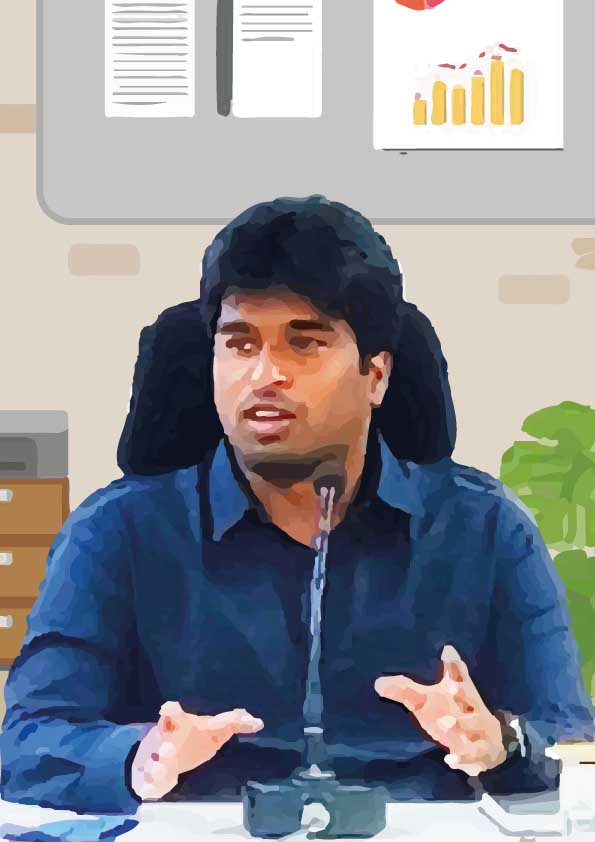Abhishikth, a computer science graduate from SRM University in Andhra Pradesh, was inspired by his parents, both public servants, to pursue a career in the government sector. His desire to make a meaningful impact on society led him to become an IAS officer. With a solution-oriented attitude, Abhishikth undertook visionary steps to ensure sustainable operation of sanitation services.
In September 2019, Abhishikth assumed the role of Municipal Commissioner in Rajamahendravaram Municipal Corporation (RMC), a well-organized city in Andhra Pradesh. Rajahmundry had made significant progress in recent years, climbing from a ranking above 100 in 2018 to securing the 51st rank in 2020. In 2021, it achieved Open Defecation Free (ODF++) certification. His predecessors had laid a strong foundation for the city's development in areas like solid waste management, liquid waste management, and worker safety. Abhishikth wanted to make sure that he built on this foundation, so he identified areas that needed improvement: optimal resource utilization, mechanization of sanitation work, and a scientific approach to waste disposal. He set out to address these issues with the goal of propelling the city into the top 10 Swachh Survekshan rankings.
In 2020-21, Abhishikth spearheaded numerous Information, Education, and Communication (IEC) campaigns, building trust between the corporation and the citizens. Young ward secretaries for environment and sanitation played a pivotal role in this unique communication approach, supporting an individualized connection with the citizens.
One remarkable IEC campaign focused on scheduled desludging of septic tanks. Each property received a sticker indicating the last cleaning date and the next scheduled cleaning date. This simple but efficient initiative raised awareness about desludging and even increased its adoption.
Abhishikth also introduced a centralized septic tank cleaning service, ensuring that proper procedures were followed, and the service was offered at reasonable prices, regardless of the size of the septic tank. A tariff was established, and GPS was installed in desludging trucks for real-time monitoring. This holistic approach of bringing together IEC for better awareness, standardization of service costs for better business costs and establishing key monitoring measures, all came together to make Rajahmundry a pioneer in sanitation. This model, well-received by citizens and operators, has inspired other municipal corporations to replicate it.
Abhishikth’s unique mindset of going beyond the city to involve rural areas resulted in the city's co-treatment facility became available to 10 surrounding villages at no cost, furthering the state's vision of rural-urban integration.
The COVID-19 pandemic underscored the significance of sanitation, leading RMC to introduce initiatives that promoted safe and hygienic practices. PPE kits were provided to sanitation workers, and awareness campaigns emphasized the importance of their usage.
Abhishikth's commitment to ensuring worker safety was evident through specialized PPE kits and institutionalized practices. The municipality actively participated in the Safai Mitra Suraksha challenge, organizing awareness campaigns, rallies, and capacity-building programs for sanitation workers.
Looking ahead, RMC aims to safely manage all waste generated, with a focus on leveraging institutional structures for sustainable sanitation service delivery. Abhishikth's dedication embodies a vision to make Andhra Pradesh a role model in sanitation. His journey is a testament to the transformative impact one individual can have on their community and beyond. With rigour, he enabled capacity where it lacked and introduced solutions towards better practices independent of any urgent requirements.

